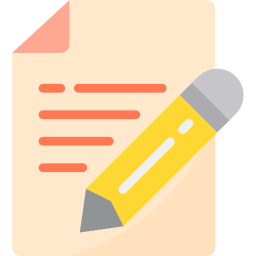When to use ing when to use to
کاربرد های فعل با تو و فعل با آی ان جی، کجا باید از Infinitive استفاده کرد


Gerunds and infinitives
A The gerund is used in the following cases:
1 as the subject/object/complement of a clause or sentence.
Subject:Reading in the car makes me feel sick.
Object: I find shopping for clothes really boring.
Complement:My favourite sport is swimming.
2 after prepositions.
I'm not very good at making things.
NB
to is a preposition in the following verbs:
I look forward to hearing from you soon.
I can't get used to living without her.
3 after certain verbs.
Peter suggested going for a picnic.
B The infinitive with to is used: to express purpose.
I’m learning English to help me get a better job.
2 after many adjectives, e.g surprised, delighted, disappointed, easy, happy, important, lucky, necessary, normal, possible, surprised.
I was surprised to hear she had failed the exam.
3 after certain verbs.
He offered to give her a lift, but she decided to go by train instead.
C Gerunds and infinitives after verbs
1 Verb + gerund
Have you finished cleaning your room?
The following verbs, like finish, are normally followed by the gerund:
a Certain verbs expressing likes and dislikes: adore, detest, dislike, enjoy, don't mind, can't stand
b Other verbs: admit, avoid, can't help, consider, delay, deny, feel like, forgive, give up, imagine, involve, keep, mind, miss, postpone, put off, practise, prevent, resist, risk, suggest
2 Verb+ infinitive with to
He promised not to tell anyone what she had said.
a The following verbs, like: promise, are normally followed by the infinitive with to: [can't] afford, agree, appear, arrange, ask, attempt, choose, decide, deserve, expect, help, hesitate, hope, learn, manage, offer, prepare, pretend, ref use, seem.
b The infinitive with to is also used after:
would like, would love, would hate, would prefer:
Verb + gerund or infinitive
a Like, love, hate and prefer are usually followed by the gerund, However, the infinitive is also possible with little, if any, difference in meaning.
I love going/to go for long walks in the hills.
The infinitive is common for specific situations:
I hate to interrupt, but we really must be going.
b Begin, start, continue and intend can be followed by the gerund or infinitive with no change in meaning.
When I arrived, it started to rain/raining.
c Forget, remember, go on, mean, need, regret, stop and try can be followed by the gerund or the infinitive, but with a change in meaning.
remember/forget + gerund = (not) lo recall a previous action
I remember coming here when I was young.
Jill never forget seeing us in concert.
remember/forget + infinitive= (not) to remember what you have to do
We must remember to feed the cat before we go.
Don't forget to phone me if you need any help.
go on + gerund = to continue with the same activity
Some footballers go on playing professionally until they're nearly 40
go on + infinitive = to change to a different activity
After a successful career as a football player;Johan Cruyff went on to become a respected manager.
mean + gerund = to involve
Dieting usually means giving up things you enjoy.
mean + infinitive = to intend
I meant to phone the electrician but I forgot.
need + gerund = (passive meaning)
This house needs painting. (= needs to be painted)
need + infinitive = (active meaning)
I need to get some new shoes.
regret + gerund = to be sorry for a previous action
I regret going to see that film: it was so boring.
regret + infinitive = to be sorry for what you are going to say (formal use)
We regret to inform you that we are unable to repair your washing machine.
stop+ gerund= to stop an activity you are doing
I've stopped smoking:
stop + infinitive = to stop doing one thing in order to do another
If you 're driving long distances, you should stop to have a rest every two hours.
try + gerund = to experiment in order to see what will happen
Try resting for a while: you might feel better then.
try + infinitive = to make an effort; lo attempt to do something
Alan tried to stop the thief as he ran away.
برای دسترسی به دروس بیشتر به لینک زیر مراجعه کنید.
لغات زبان انگلیسی به تفکیک موضوع
درک مطلب از سطح مبتدی تا پیشرفته
تمامی موضوعات آیلتس اسپیکینگ پارت یک، دو و سه همراه با جواب
Fill the gaps with suitable prepositions.
I am good playing football.
The students complain having too much homework.
He is afraid losing his job.
She doesn't feel working in the garden.
We are looking forward seeing you at the weekend.
I dream winning the lottery. ( 2 letters )
She apologized being late.
I don't agree what you are saying. ( 4 letters )
The girls insisted going shopping.
John is thinking leaving his job. ( 5 letters)
Decide if infinitive or gerund is used in the gap. put the correct form of the verb in the gap.
I can't imagine Petra (go) by taxi.
He agreed (buy) a new bike.
The question is difficult (answer) .
She asked me how (get) to the station.
I look forward to (see) you next Monday.
Are you thinking of (visit) Berlin?
We decided (walk) through the park.
Our parents expected us (study) hard.
Susan doesn't mind (wait) for us.
I learned (drive) a car at the age of 16.
We've got some work (do) .
The teacher made us (do) a lot of homework.
Dad gave up (drink) .
Do you think she (travel) to the USA?
He'd like (ride) a horse.
Do you know what (do) if there's a fire at school?
He did't want to let me (go) to school.
Avoid (make) silly mistakes.
My parents want me (be) home at 11 pm
Could you (Help) me sort the cloth?


